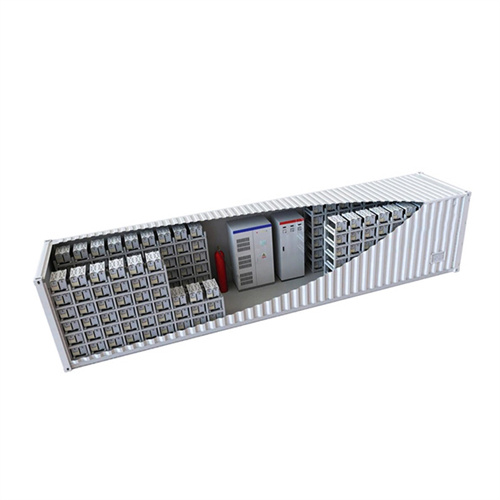Niger Solar Energy for Homes

ENERGY PROFILE Niger
Solar PV: Solar resource potential has been divided into seven classes, each representing a range of annual PV output per unit of capacity (kWh/kWp/yr). The bar chart shows the proportion of a country''s land area in each of these classes and the global distribution of land area across the classes (for comparison).

Securing Electricity in Niger Through Renewable Energy
The Niger Solar Electricity Access Project (NESAP), aimed at enhancing electricity access in rural and peri-urban areas of Niger through solar energy, started in 2017 and has built 15 solar power plants.

OPEC Fund supports Niger''s solar energy development
The OPEC Fund''s loan will finance the construction and grid integration of the 10 MW Dosso solar plant. Only around 20 percent of the population of Niger have access to electricity; one of the lowest rates in Sub-Saharan Africa and with significant disparities between urban and rural areas and regions.

Off-Grid Solar Market Assessment Niger
This report provides a comprehensive and detailed review of solar home systems (SHSs), mini-grids, productive use of energy, and other aspects of the off-grid solar value chain. Additionally, this report includes details on policy and regulatory issues, the structure and historical context of the energy sector, and gender mainstreaming.

IFC Partners with Niger to Boost Access to Clean Power Through
The project will help power thousands of homes, schools, businesses, and hospitals in Niger, where most lack access to electricity, and support the government''s efforts to generate 30 percent of its power through sustainable sources by 2035.

Savannah Energy Signs Agreement for 200 MW Solar Power Plants in Niger
Savannah Energy, a British independent power company, enters into an agreement with the Niger government to develop two solar photovoltaic power plants with a combined capacity of 200 MW. Learn about the project''s timeline, potential impact on the country''s electricity grid, and efforts to reduce carbon emissions.

Niger
With 80% of Niger''s population living in rural areas, the rate of electrification goes down to less than 1%. IFC is working with the government to identify private operators to design, finance, build, operate, and maintain grid-connected solar PV installations on an IPP basis, with the total combined minimum dispatch capacity of at least 50

Securing Electricity in Niger Through Renewable
The Niger Solar Electricity Access Project (NESAP), aimed at enhancing electricity access in rural and peri-urban areas of Niger through solar energy, started in 2017 and has built 15 solar power plants.

Power Africa in Niger
The Government of Niger created ANPER to design, implement, and monitor country-wide rural energy efforts to help Niger achieve universal rural electrification by 2035. ANPER realized that solar mini-grids offer a cost-effective, fast pathway to delivering first-time energy access to

Unveiling Trends and Themes of Residential Renewables in Niger
Introduction: Niger, situated in West Africa, is embarking on a journey towards sustainable energy solutions to address energy access challenges and promote economic development. In recent years, residential renewables have emerged as a promising avenue for households seeking reliable and clean energy alternatives. This article delves into the evolving

6 FAQs about [Niger Solar Energy for Homes]
Are there any off-grid solar energy systems in Niger?
There is considerable experience of off-grid PV electrification, water pumping and solar water heating systems in Niger. Each of these will be explored below. The main decentralised renewable energy system being promoted in Niger for rural electricity is solar PV.
Where can solar energy be used in Nigeria?
Solar energy can be applied in the following areas in Nigeria, including; agriculture, engineering, medical sciences, power generation, and recreation. The need to use solar energy in these areas becomes more critical with the fast depleting and finite availability of fossil fuels.
Does Niger have solar power?
Before moving ahead, further data need to be collected and analysed to ensure their potential and viability. Niger enjoys high solar radiation conditions in all eight of its regions. Average solar radi-ation is 5-7 kWh/m2 per day (figure 9), and there are seven to ten hours of sunshine per day on average.
How has solar technology been promoted in Niger?
Solar PV and other solar energy technologies continued to be promoted in Niger through various outlets, including the national school television programme. Solar technology installation also contin-ued, largely in PV pumping areas and through education and health infrastruc-ture electrification.
Is solar energy a good alternative source of power in Nigeria?
You will find one or a combo of these sources of electricity in every Nigerian home. Solar Energy is fast becoming the new normal when it comes to an alternative source of power supply in Nigeria, and it rightly lives up to its claim of providing a constant source of power supply at an affordable price.
Is solar energy the new normal in Nigeria?
Solar Energy is fast becoming the new normal when it comes to an alternative source of power supply in Nigeria, and it rightly lives up to its claim of providing a constant source of power supply at an affordable price. Join me as I take you through an exciting unveiling of the top solar energy companies in Nigeria.
Related Contents
- Saint Helena solar energy for residential homes
- Niger electric furnace solar panels
- Public solar energy French Southern Territories
- Solar power generation is what energy
- Sade solar energy storage box
- Solar energy storage device fish pond
- Can column lights generate electricity from solar energy
- Hanergy Solar Power Station Solar Energy
- Solar energy world Bhutan
- Bonaire Sint Eustatius and Saba solar energy quotes
- By Solar Energy Generation
- Solar energy storage for seasonal heating